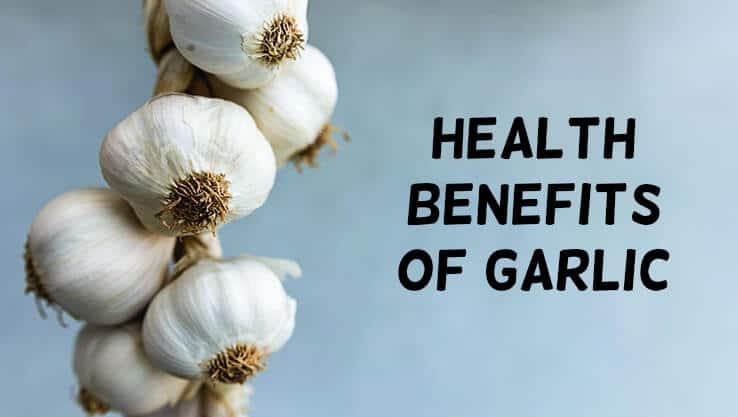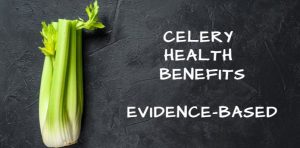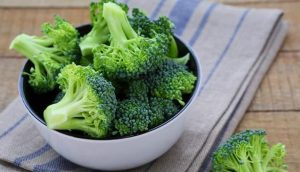GARLIC
Even though garlic has a bad reputation for causing bad breath, its impressive health benefits easily override this drawback.
Garlic has been consumed for thousands of years in different parts of the world. However, ancient societies used garlic not only to add flavour to their meals but also to treat various ailments (1).
According to the Agricultural Research Service; garlic might have been used as early as 5,000 years ago by Egyptians and Indians (2).
Furthermore, garlic is known to have been prescribed as a medicine by “Hippocrates” known as the father of western medicine to treat ailments (3).
Today’s modern and knowledgeable people as well, use garlic with the aim of treating and preventing various diseases and ailments such as sore throats, nausea, diabetes, cancer, etc.
It is understandable that ancient people used many herbs and plants including garlic to overcome diseases. Because they didn’t have the medical knowledge and equipment we have today.
However, modern medicine, which is advanced enough to take one person’s heart and transplant it to another, also promotes the idea of using garlic as an alternative medicine for many ailments.
In this article, we are going to distinguish right from wrong about the health benefits of garlic. To do that, we will listen to nutrition experts and examine the scientific studies conducted on garlic’s health benefits.
Firstly let’s glance at the rich nutrient content of garlic. After all, its nutrient content is the main reason why garlic is famous for its health benefits.
Garlic Nutrition Facts
In this section, we will explore the rich nutrient content of garlic.
The nutrients available in garlic are the main reason why this small vegetable has been shown as one of the healthiest foods on earth.
Garlic can provide your body with various macro and micronutrients. However, some of them are found in large amounts.
These are vitamin C, thiamin, vitamin B6, calcium, iron, phosphorus, potassium, copper, manganese, and selenium.
According to Nutrition Data, 1 cup of (136 gr) raw garlic provides;
– Vitamin C: 72% of Daily Value
– Thiamin: 18% of DV
– Vitamin B6: 84% of DV
– Calcium: 25% of DV
– Iron: 13% of DV
– Phosphorus: 21% of DV
– Potassium: 16% of DV
– Copper: 20% of DV
– Manganese: 114% of DV
– Selenium: 28% of DV
While these nutrients abound in garlic, according to experts; sulphur compounds ( mainly Allicin) in garlic are responsible for most of its health benefits(4).
Note that: allicin occurs after raw garlic has been chopped, sliced or crushed (5).
Health Benefits of Garlic
Now that we have explored the nutrients available in garlic, we are ready to focus on the health benefits of garlic.
Here are the 7 evidence-based health benefits of garlic.
1- Boosts the Immune System
The value of the immune system occurs to many of us each year while entering the autumn which is also the beginning of the flu season.
Therefore, a great number of people look for ways to boost their immune systems.
Scientific research and studies indicate that certain nutrients and compounds available in garlic can potentially support the immune system.
Researchers from the University of Florida carried out a study with 120 participants on garlic and immune functions. As per the results; they suggested that aged garlic extract may improve immune cell function. And, that also indicates garlic may reduce the severity of colds and flu (5), (6).
In another study carried out with 146 participants, researchers found that those who took allicin-containing garlic supplements for 12 weeks experienced significantly fewer viral infections compared to the placebo group (7).
Although some of them who had taken garlic supplements developed viral infections, they recovered faster than the placebo group.
Conclusion: Regular consumption of garlic and garlic supplement may boost the immune system thus preventing viral infections. In general, for adults, it is safe to eat 1 to 2 cloves of garlic each day.
2- Cancer Prevention
Ancient people used garlic to treat many diseases, however, it seems cancer was not one of these diseases. The allegation that ” garlic can prevent cancer ” was made by modern people.
It would be good to say that garlic consumption provides full protection against cancer. However, there is no scientific study that confirms 100 per cent the efficacy of garlic against cancer.
Moreover, as scientists say “there is no single food that can prevent cancer alone“.
Having said that, observational studies indicate that garlic may reduce the risk of certain cancers such as stomach and colorectal (bowel) cancer.
In one well-established study; researchers concluded that garlic extract has anti-cancer activities in vitro and in vivo. However, this activity may show alteration based on different cancer cells (8).
Conclusion: garlic holds a promising potential to prevent cancer. Nevertheless, more research is needed to understand its efficacy against cancer.
3- Lowers Blood Pressure
Hypertension can lead to serious complications such as stroke and heart attack. Therefore, it is crucial to keep blood pressure at comfortable levels. Does garlic help manage high blood pressure? According to science; yes, garlic has blood pressure-lowering properties.
Multiple studies and experts confirm garlic’s hypertension lowering effect.
As per the findings of a review and meta-analysis study; garlic supplements have effectiveness in decreasing blood pressure in hypertension patients (9).
In another review, researchers obtained nearly the same results and confirmed the massive potential of garlic in reducing hypertension (10).
Moreover, we know that garlic is a decent source of potassium.
According to the American Heart Association: potassium helps to manage high blood pressure (11).
Conclusion; It appears garlic can lower blood pressure levels. However, if your intention is to consume garlic with the aim of lowering your blood pressure level, we recommend you talk to your health care provider about this intention and the right dosage.
4- Lowers Cholesterol Levels
High cholesterol, along with high blood pressure, is a strong risk factor for cardiovascular diseases such as heart attack and stroke. Keeping them under control means a lower risk of these diseases (12).
As indicated in the previous section garlic is an effective vegetable to lower high blood pressure.
Scientific studies point out that garlic can also decrease LDL, which means bad cholesterol levels.
In a well-rounded scientific report; researchers concluded that garlic provides potential protection to the cardiovascular system mainly by lowering cholesterol levels (13).
In another study; researchers found that 6 weeks of garlic powder tablet use significantly improved patients’ cholesterol levels. Thereupon, researchers concluded that garlic may play a significant role in the therapy of high cholesterol (14).
Conclusion: It appears garlic holds a huge potential to lower high cholesterol levels.
5- May Protect Brain Functions
Garlic consumption may also protect brain functions thanks to its rich antioxidant content. Antioxidants combat free radicals that can damage brain functions.
With ageing, human brain cells die, resulting in brain activities slowing down. Oxidative damage that occurs due to excess free radicals accelerates this ageing process (15).
Recent evidence tells us that oxidative stress caused by free radicals may lead to Alzheimer’s disease (16).
Conclusion: As garlic contains natural antioxidants, this vegetable can protect brain functions by reducing the harmful effects of free-radical on the brain.
6- May Increase Athletic Performance

Here is another way ancient people benefited from garlic. According to ancient medical texts, Olimpic Athletes in Greece would eat garlic to maximise their athletic performance (17).
Moreover, according to a review; in ancient times garlic was also given to workers to increase their working performance (18).
What modern science says about garlic’s potential performance-boosting effect?
In one study; researchers evaluated garlic’s performance-boosting effect on male rats. As per the results; they concluded that ” long-term garlic consumption may improve physical performance. ” (19).
In another study; 10 trained male athletes were given dried garlic powder and after 5 hours their athletic performance was evaluated. According to findings; oxygen consumption and endurance performance time increased significantly (20).
Conclusion: studies suggest that garlic may improve physical performance and endurance. However, more human-centred studies are needed to draw a certain conclusion.
7- Better Skin and Hair
As mentioned at the beginning of the article garlic is rich in essential minerals, vitamins and antioxidants. As such, it would not be a surprise to hear that garlic improves hair and skin health.
But how exactly garlic can contribute to the skin and hair though?
As for the skin; garlic (as stated above) contains antioxidants that combat free radicals. Another organ free radicals can take a toll on is the skin.
Free radicals can damage the skin’s collagen thus causing skin problems like dark spots, wrinkles, under-eye bags, etc (21).
Moreover, garlic has an antibacterial property. Therefore, it may prevent acne caused by bacteria accumulation in the skin pores.
Finally, garlic is also rich in nutrients that are essential for hair health. To be more precise: vitamin B-6, vitamin C, manganese, selenium and zinc are the nutrients in garlic that are beneficial for hair.
Tarkan is an experienced health writer ( currently more than 600 articles ) and also the founder of this website namely www.neededforhealth.com. His expertise in health stems from in-depth medical research and knowledge which he obtained over the course of many years.
Tarkan enjoys sharing factual knowledge on health, psychology and nutrition. He always aims to deliver evidence-based recommendations, provide links to related scientific studies.





